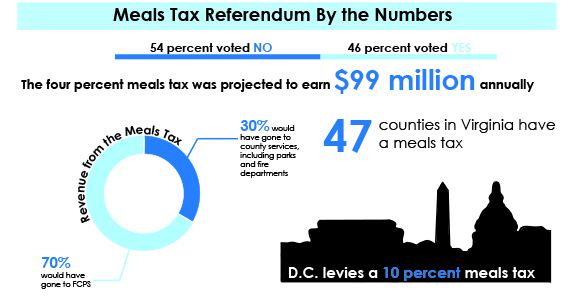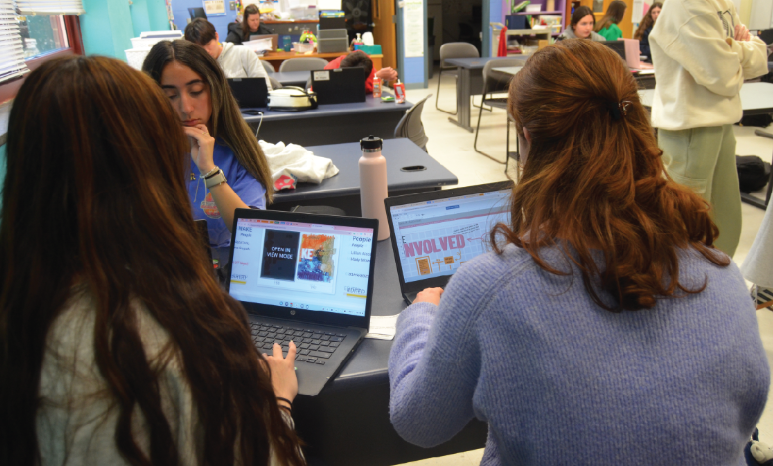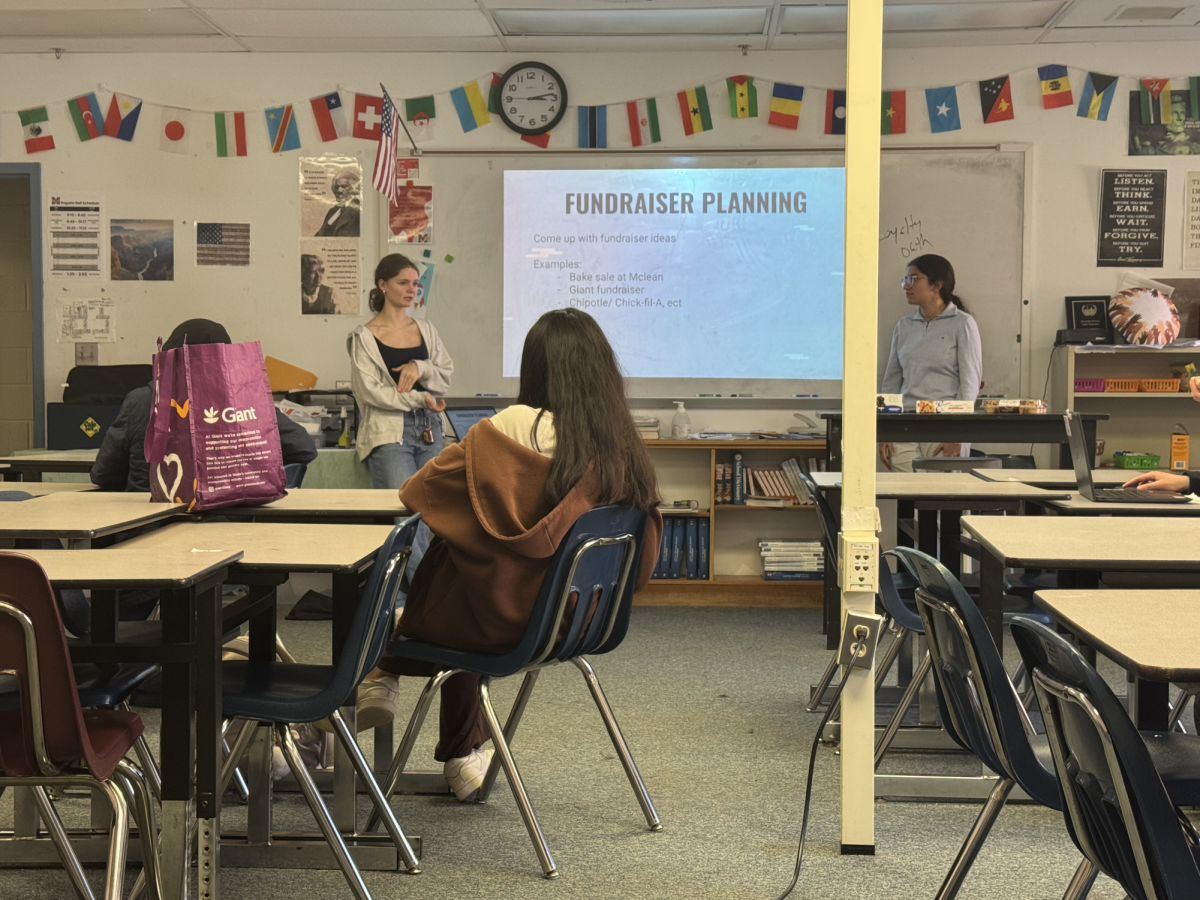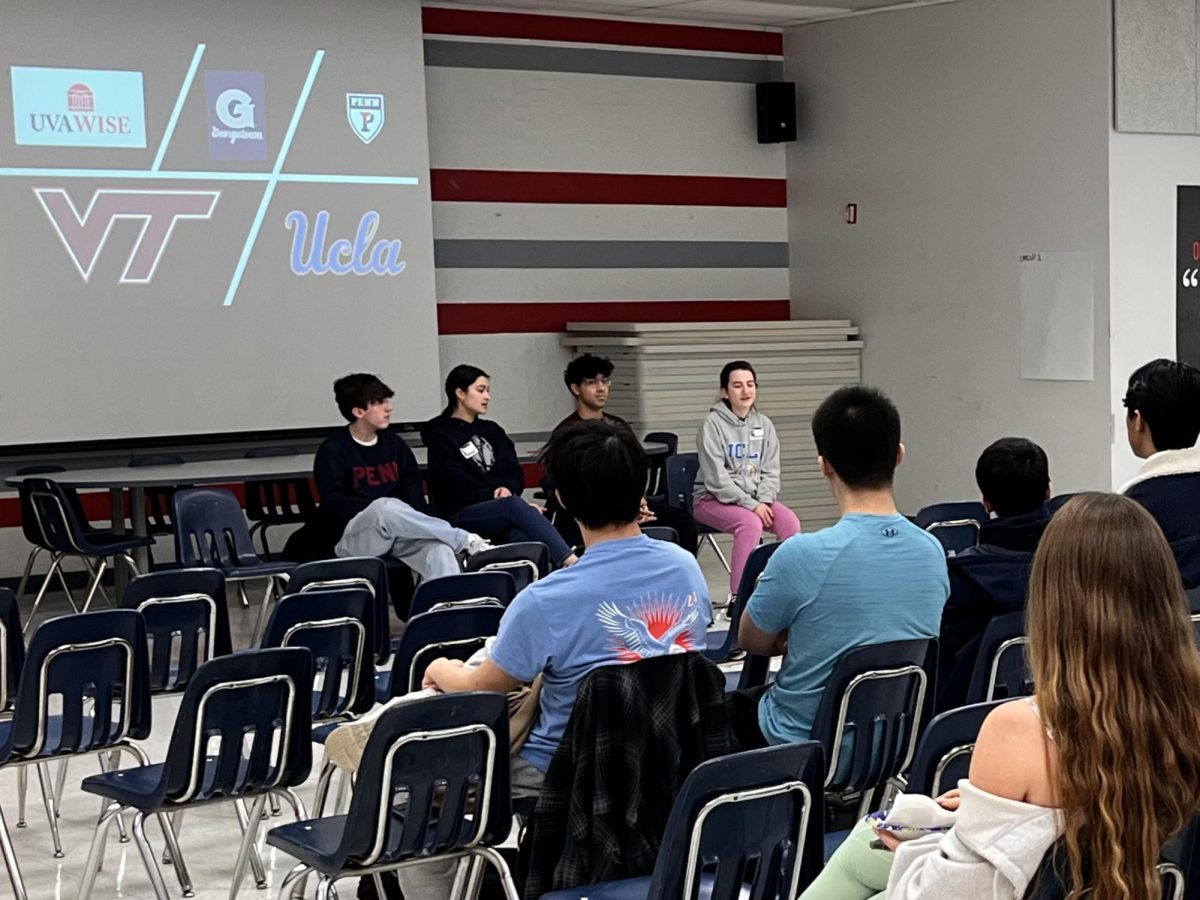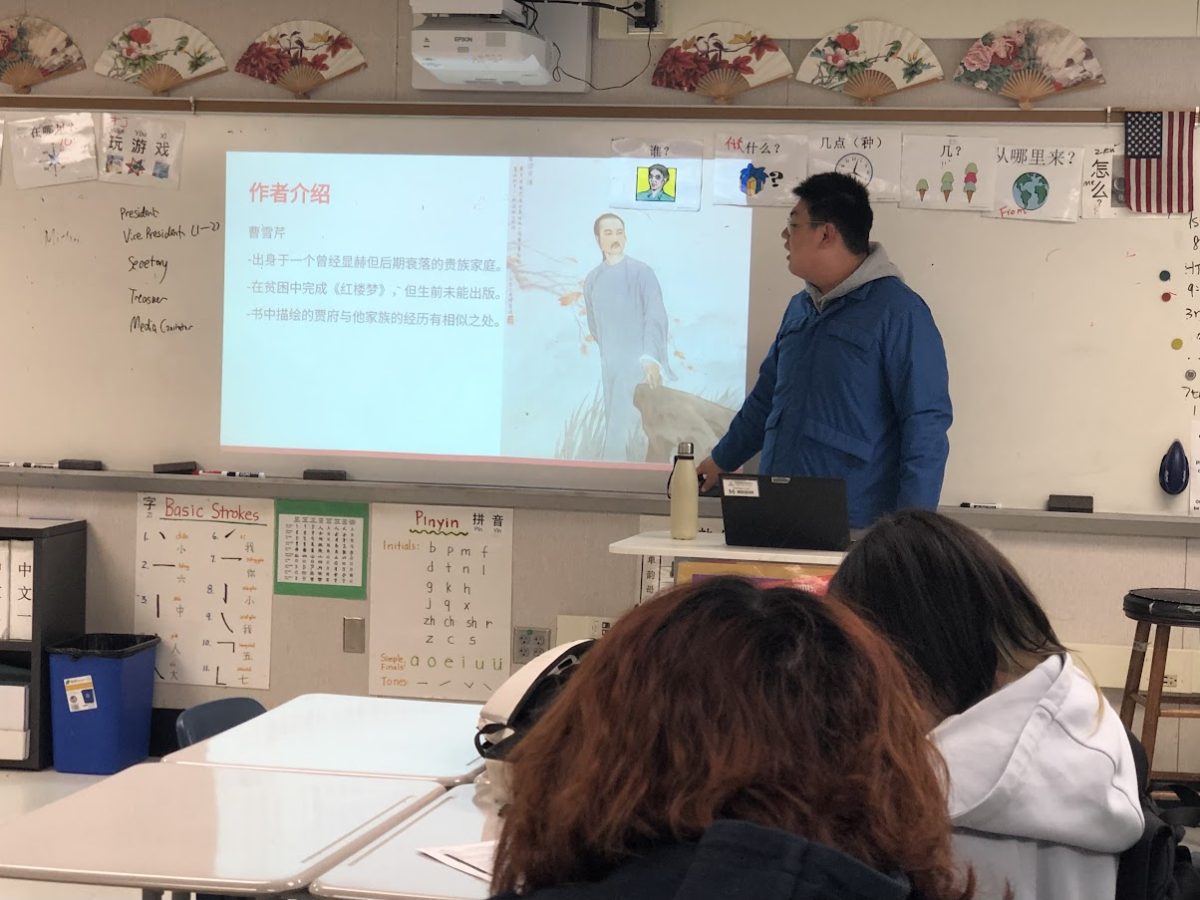Fairfax County voters cast their ballots in a meals tax referendum on Tuesday, Nov. 8, and 54 percent of voters voted against the tax.
The referendum proposed a four percent tax on prepared food and meals served in restaurants. Fairfax County had projected that this tax would generate as much as $99 million per year.
The county said 70 percent of the meals tax revenue would have gone to funding FCPS, while the remaining 30 percent would have been used to fund county services and provide property tax relief.
Those in favor of the meals tax said they are disappointed in the lost opportunity for additional school funding.
“I think it’s unfortunate that the citizens of Fairfax County did not see it necessary to invest in our schools, in the resources that are available to our students and the human resources our teachers are,” social studies teacher Cynthia Hawkins said. “As a teacher, I find it demoralizing.”
One of the principal arguments against the meals tax was that there was no guarantee the money would be used efficiently or in the way the county claimed it was going to be used.
“Even though funding schools is great, the thing is that a lot of previous meals taxes [have] shifted some of that [originally pledged] 70 percent to schools [to] 30 percent,” said senior Bradley Lamkin, who voted against the tax.
Lamkin said he also feared that local tourism and restaurants would suffer because of the tax.
“I think it’s going to [hurt] tourism in Fairfax County, especially [in] Tysons,” Lamkin said. “A lot of people are going to be less likely to go to restaurants, which hurts local businesses.”
Without the meals tax revenue, the Fairfax County government may have to consider budget cuts to schools and adjustments to staffing, according to physics teacher Dean Howarth. Howarth serves on the Superintendent’s Teacher Advisory Council.
“What will probably happen is that class size will go up and teacher salaries will go down… Benefits for county employees will get chopped down which is probably going to accelerate the fact that most teachers, especially the young ones, [will be motivated to teach elsewhere],” Howarth said. “I think you’re going to see an exodus of talent even more.”
While future budget cuts will carry consequences, they likely will not have obvious effects for a few years. Howarth said he believes it will take cuts to major programs for public concern to increase.
“Personally, I don’t think the community will react until some big cuts happen,” Howarth said. “If you got rid of elementary band, then everyone would freak out, saying, ‘Oh my god, how can these things happen?’ Well, where was your sense of urgency on Nov. 8?”
